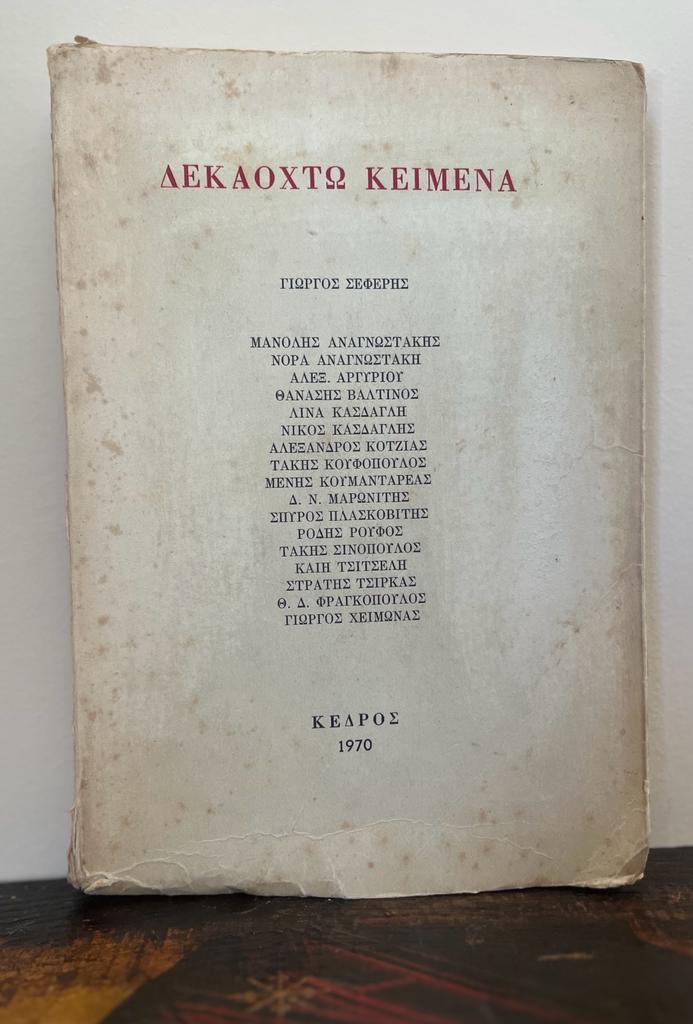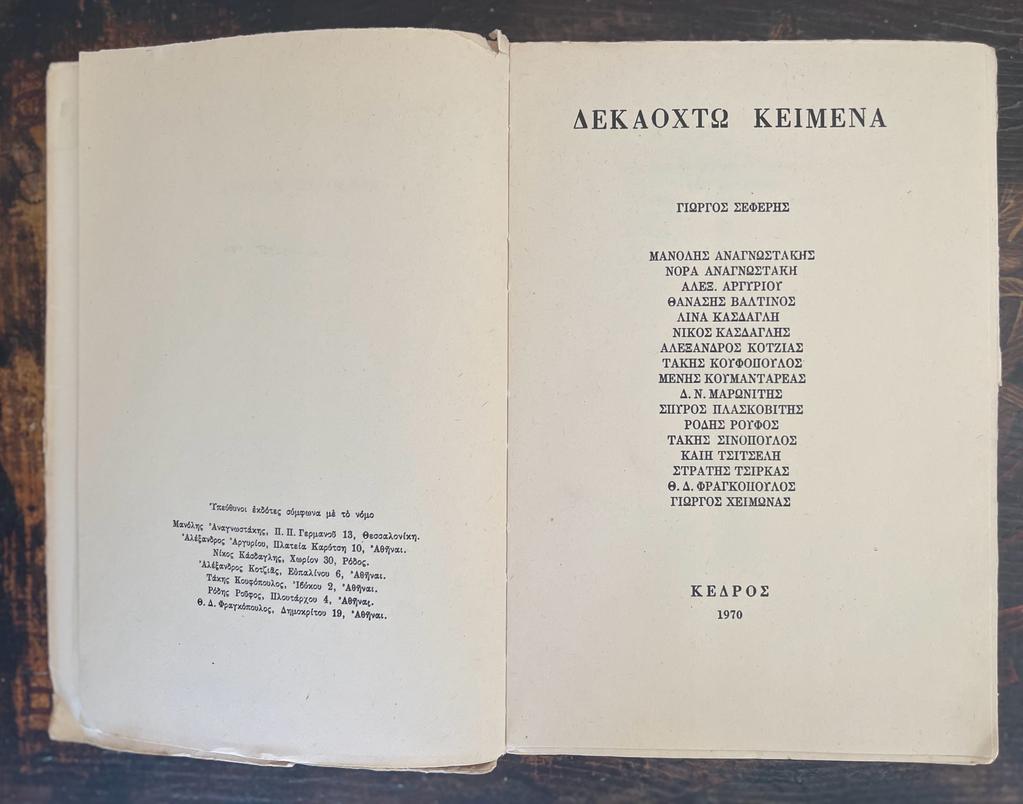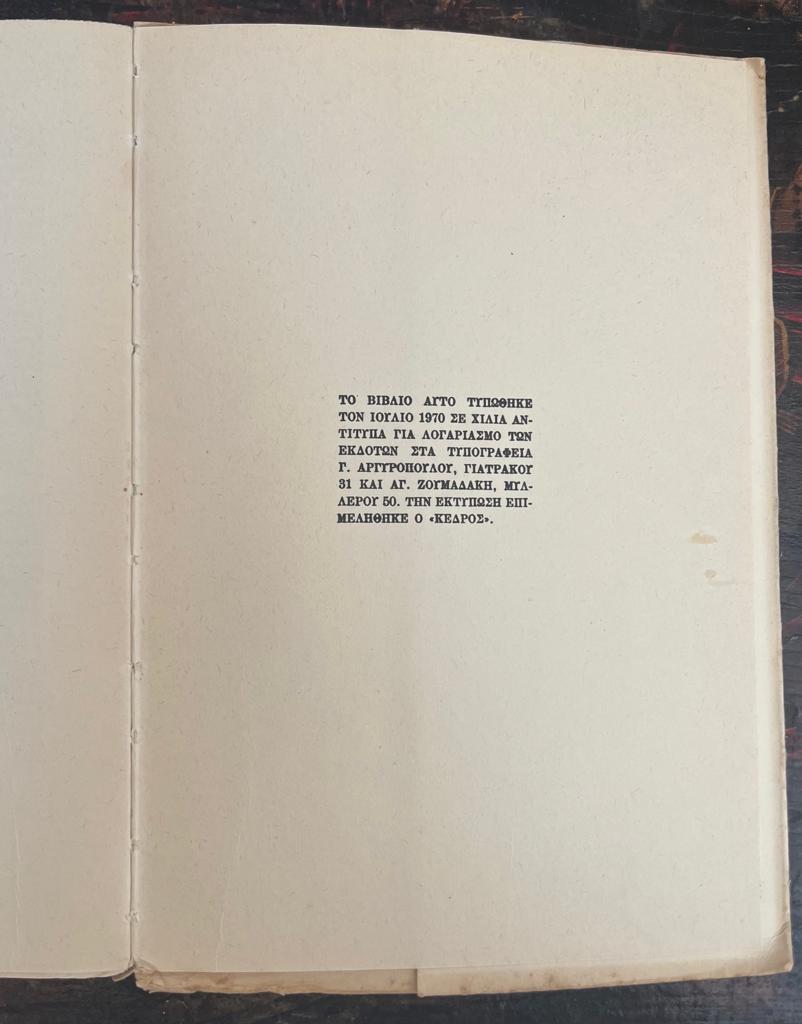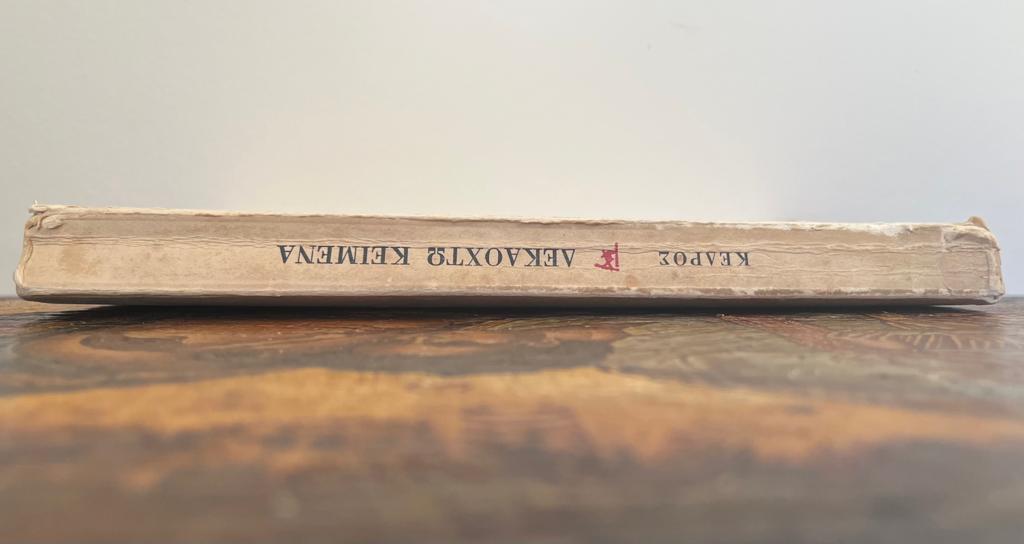1970, Eighteen Texts, Seferis George, Nobel Laureate, Dekaochto Kimena, First Edition, Very rare!
45.00€
“It’s been a while since I made the decision to stay out of local politics. I have tried to explain it before, this does not mean at all that I am indifferent to our political life. So since those years, until recently, I have generally stopped touching on such subjects – besides what I published up to the beginning of 1967 and my subsequent attitude – I have not published anything in Greece since freedom was silenced, it seemed to me it seems, clearly my thought…”
George Seferis
Out of stock
Description
Δεκαοχτώ Κείμενα
Dekaochto Kimena
Eighteen Texts
Athens, Kedros 1970
First Edition, First Printing
212 Pages , 8vo
Original Paper Binding
First in the series, the poem of Nobel laureate Giorgos Seferis “The cats of Ai-Nicolas”,
followed by:
A small dialogue (Kaii Tsitseli), The actor (Takis Koufopoulos), The radar (Spyros Plaskovitis), Returning (Alexandros Kotzias), Nights (Takis Sinopoulos), One Testimony (Nora Anagnostaki), The Candidate (Rodis Roufos), Doctor Ineotis (Giorgos Heimonas), El Procurador (Th. D. Fragopoulos), Change of Weather (Stratis Cirkas), The Target (Manolis Anagnostakis) , Pride and drunkenness (D. N. Maronitis), Athos (Nikos Kasdaglis), The Plaster (Thanasis Valtinos), Saint Kyriaki on the rock (Menis Koumandareas), Crossing signs (Lina Kasdaglis), The style of a language and the language of a style (Alexandros Argyriou).
The spirit against the junta (1967-1974)
July 1970 – exactly 53 years since the Eighteen Texts were published, with the pains of an equal number of Greek writers, who decided, amidst the Juntic gloom, to break the silence imposed by the dictatorial regime.
However, a few months earlier (autumn 1969) the preventive censorship had been lifted – not so much out of respect for democratic freedoms, but because the Nobel laureate poet Giorgos Seferis had broken his silence with a statement (March 28, 1969), which was widely publicised by the world and upset the junta (with its mouthpieces, mainly the newspapers Eleftheros Kosmos and Nea Politia, mocking and slandering the poet).
Additional information
| Languages | Greek |
|---|
You may also like…
-

1952, Stratis Myrivilis, To Kokkino Vivlio, Estia, First Edition and First Printing, Εvangelos Spyridonos
70.00€ Read more -

Yiannis Ritsos, 1940, To emvatirio tou Okeanou, Ocean’s March, First Edition
190.00€ Add to cart -

1966, Nikos Gavriil Pentzikis, To Mythistorima tis Kyrias Ersis, First Edition, First Printing, 1/1500
60.00€ Add to cart -

Yiannis Ritsos, 1938, Vernal Symphony, First Edition, Earini Symfonia
190.00€ Add to cart









